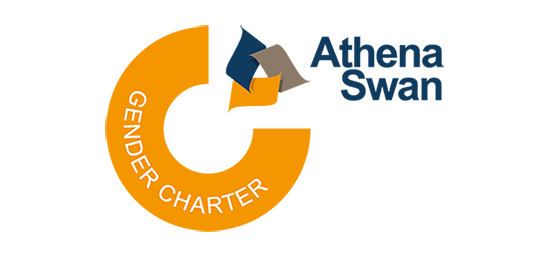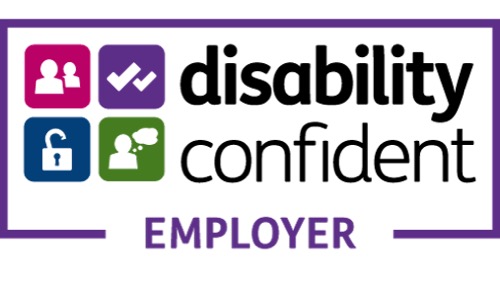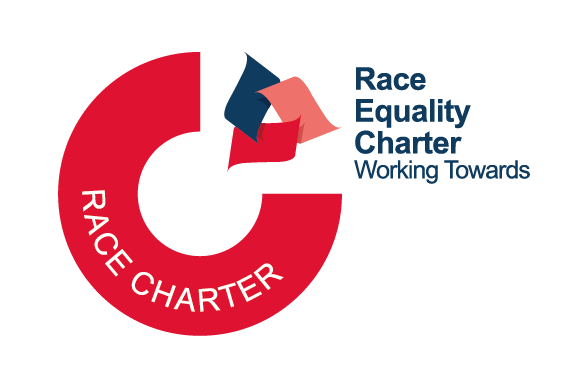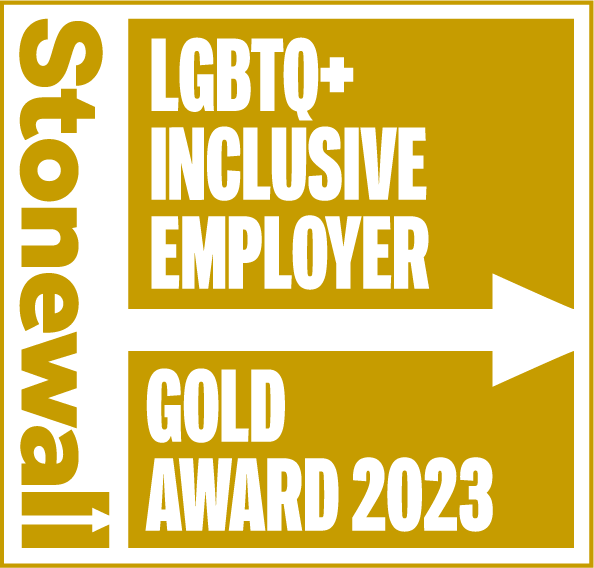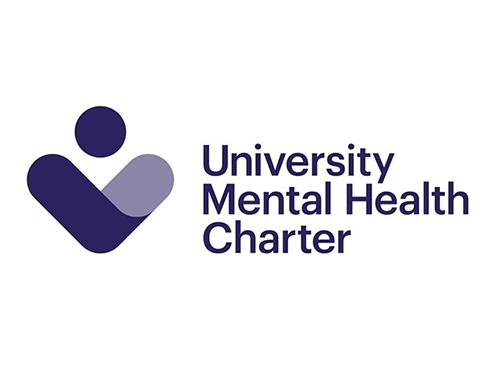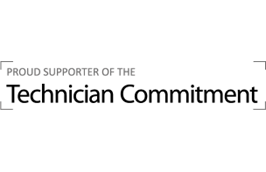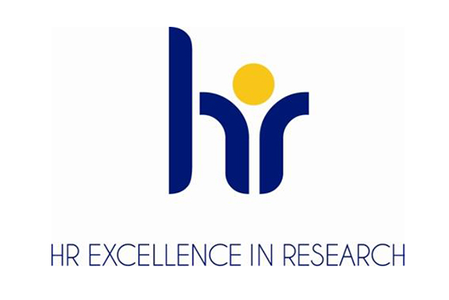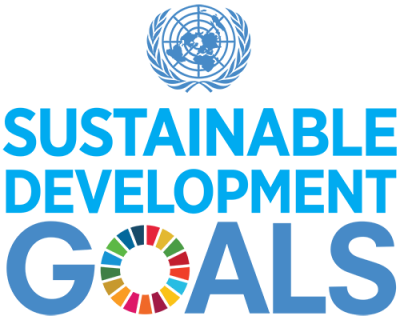Our inclusive culture fosters an environment for individuals and groups covered by the nine protected characteristics (Age, Disability, Gender Reassignment, Marriage and Civil Partnership, Pregnancy and Maternity, Race, Religion and Belief (including lack of belief), Sex, Sexual Orientation) and freedom of expression and a place for staff and students to feel safe, accepted and recognised for who they are without fear of exclusion.
In addition to this webpage, we also have an Equality, Diversity and Inclusion Compliance webpage.
For further questions and information, please contact equality@greenwich.ac.uk or create a request via Horizon Help Desk.
Strategic commitments
We take active steps to provide an inclusive environment for students, staff and visitors. Our University Strategy sets out our aspirations to several accreditation and charters, which provide a foundational framework to improve the working and study lives of our university community.
Athena Swan
The University of Greenwich has been granted an Institutional Bronze Athena Swan Award in May 2024.
Disability Confident Employer Level 2
The University of Greenwich has been reaccredited with its Disability Confident Employer Level 2 status in August 2022.
Race Equality Charter
The University of Greenwich is progressing our application for an Institutional Bronze Race Equality Charter Award for submission in 2025.
Stonewall Workplace Equality Index (WEI)
University of Greenwich retains a Gold rating and ranks 20th in Stonewall’s Top 100 Employers List in February 2023.
University Mental Health Charter
The University of Greenwich was a founding partner with Mind supporting the Mentally Healthy Universities Programme. We are now progressing our application towards the University Mental Health Award in September 2025.
Technicians Commitment
The University of Greenwich has been presented with an Award of Submission at a Technician Commitment Signatory Event in May 2024.
Additional charter work and EDI initiatives
We take active steps to provide an inclusive environment for students, staff and visitors. Our University Strategy sets out our aspirations to several accreditation and charters, which provide a foundational framework to improve the working and study lives of our university community.
Hidden Disabilities Sunflower Scheme
The University of Greenwich is committed to supporting everyone with a hidden disability.
HR Excellence in Research
The HR Excellence in Research Award reflects the commitment from the University of Greenwich to support researchers in their career development by implementing the 'Concordat to support the Career Development of Researchers' in August 2022.
Menopause Friendly Accreditation
The University of Greenwich has been accredited as a Menopause Friendly institution by Henpicked in October 2024.
United Nations Sustainability Development Goals (UNSDG)
The University of Greenwich is proud to contribute to the UNSDG, including SDG 5 (Gender Equality) and SDG 10 (Reduced Inequalities). We are working through our partnerships to accelerate and improve our work (contributing to SDG 17).
United Nations Sustainability Development Goals (UNSDG) Find out more
Race Action Plan
The University of Greenwich's Race Action Group works to strategically deliver the University’s Race Action Plan and the application for the Race Equality Charter.
Frequently Asked Questions
What is the Gender Pay Gap at the University of Greenwich?
(a) Gender Pay Gap
HEI’s with 250 or more employees are required to publish information on an annual cycle on 30 March on the pay of all employees in a ‘snapshot’ dated 31 March.
The Public Sector Equality Duty [PSED] specific duties aim to help HEIs perform better in meeting the equality duty.
The focus of the specific duties is transparency in how HEIs are responding to the equality duty. It is important to note that institutions must meet both the equality duty and the specific duties – it is not enough to meet the specific duties alone.
There are four elements of the specific duties:
- Publication of information
- Equality objectives
- Manner of publication
- Gender pay gap reporting
The university has an ambition of no mean gender pay gap by 2030. All our Gender Pay Gap reports can be accessed on the EDI Compliance page.
(b) Wider Pay Gap
The university currently reports on our Disability, Ethnicity and Sexual Orientation pay gaps. These voluntary reports follow the same structure and reporting metrics as the mandatory Gender Pay Gap report. This has been in preparation for potential mandatory reporting of Disability and Ethnicity data. In 2025 we published a single university pay gap report, which covers the four protected characteristic outlined previously.
What is the workforce composition of the University of Greenwich?
Key facts about the University of Greenwich's student and staff populations as returned to the Higher Education Statistics Agency (HESA), can be accessed here.
Our EDI Annual Report outlines our staff and student demographic information broken down by protected characteristics, based on the latest HESA Return and supplemented by Horizon staff self-disclosure information.
How does the University of Greenwich create an inclusive culture?
Inclusivity and Culture is strategic priority two within the University Strategy, This is Our Time 2030, with Inclusivity as a core value. Current key projects to embed our inclusive culture include:
- Defining anti-Semitism (based on IHRA and JDA definition), Islamophobia and Racism terminology
- Working collaboratively with the Greenwich Student Union and allied societies
- Implementing our Race Action Plan
- Inclusion calendar to provide information on faiths, festivals, observances, culture, mental health and wellbeing.
- The LGBT+ Culture in HE Research Report explores the LGBT+ staff culture at the University and is for staff identifying as LGBT+, allies or neither of the two. It aims to provide further evidence to inform policies and practices in HE that celebrate diversity & promote inclusivity.
- Membership to external bodies (e.g., Advance HE, Department of Work and Pensions, Stonewall etc.) to support accreditation work
- Engaging with partners to ensure they hold and exhibit our values in all working processes e.g., EDI embedded within our procurement activities
- Supporting our Staff Network and Communities
What accreditations and charter marks does the University of Greenwich hold and aspire to achieve?
The University Strategy outlines our aspirations on accreditation and charter work, with an update on individual charters listed above. These provide frameworks to instigate change to benefit the ‘lived experience’ of our staff, students and wider community. The following list are current accreditations we have either achieved* or are working towards:
Strategic commitments:
- Athena Swan*
- Disability Confident*
- Race Equality Charter
- Stonewall Workplace Equality Index (WEI) *
- University Mental Health Charter
- Technicians Commitment*
Additional Charter Commitments:
- Hidden Disabilities Sunflower Scheme*
- HR Excellence in Research*
- Menopause Friendly Accreditation*
- Sustainability Development Goals*
What Equality, Diversity and Inclusion Training does the University of Greenwich offer?
All new staff are required to complete a self-paced course on Equality, Diversity and Inclusion (EDI). Line managers are required to complete an additional self-paced course tailored to Managing Diversity.
Our EDI Training raises awareness, covers equality legislation, protected characteristics and everyone being treated equitably. It also covers how behaviour may amount to discrimination, bullying and harassment, signposting to policy and guidance. Alongside providing information on how discrimination, bullying and harassment can be prevented, challenged and reported. Feedback mechanism on Horizon Learning exist, which includes the inclusion of representation of employees in the training.
We have additional leadership training including Aurora, Leap into Leadership and South East Action Learning. We also run a Reverse Mentoring programme where Staff Network/Community members have an opportunity to mentor a member of the Senior Leadership Team.
What Equality, Diversity and Inclusion policies, procedures and guidance does the University of Greenwich have?
The People Directorate is responsible for staff policy development and review. Policies are scrutinised to ensure they are fair and inclusive, aligning with the university strategy. Research is conducted on employment law, CIPD advancements, sector practice and regulatory bodies. Equality Impact Analysis (EIA) ensures ‘due regard’ (conscious thinking) for the Equality Act 2010, applicable to both staff and student policy.
Policies and regulations are published on the university website and are accessible to all staff and students, examples include:
Policies
- Bullying and Harassment Policy
- Equality and Diversity Policy Statement
- Flexible Working
- Special Leave
- Maternity Leave
- Paternity and Partner's Leave
- Shared Parental Leave
- Parental Leave Policies
Procedures
Guidance
For further policies, please contact the People Directorate or create a service request on Horizon Help Desk.
Student Policy
Student policies are assessed against the HE statutory and regulatory environments and good practice in the sector. They aim to provide a safe and supportive environment in which to study and undergo student life. They set out responsibilities as a student, both academic and non-academic, and set out the university’s responsibilities to students.
How is Equality, Diversity and Inclusion monitored within governance processes?
Reporting to the Vice-Chancellor's Executive and also to the People Board on elements of the People Sub-Strategy relating to EDI, the EDI Committee makes recommendations on the University's EDI programme and delivers sector leading EDI activities and oversees implementation of the EDI Programme. It champions equity in representation, pay, experience, culture and the environment across its community. Minutes for the committee can be accessed here .
Values of the University
Inclusive
Always inclusive and empowering – being fair, supportive, aware, compassionate, polite, respectful, and determined, and ensuring all people are supported and celebrated.
Collaborative
Embracing collaboration – working together, being open-minded, listening, being adaptable, free-thinking and enterprising, and seeking out new ideas together.
Impactful
Evidence led and outcomes focused – making a difference, demonstrating our contribution to knowledge and society, achieving goals for ourselves, the university community and the wider world.
Our independent staff networks

BAME Staff Network
The purpose of this Staff Network is to provide a safe, supportive and confidential forum for both academic and professional roles to share experiences, networking and discussing identified issues affecting BAME staff from across the University.

Disabled Staff Community
The purpose of this Staff Community is to provide support and empower staff experiencing a spectrum of disabilities. They aim to raise awareness and sensitise colleagues to our barriers, capabilities and experiences.

LGBT+ Staff Community
Open to all staff who either identify as, or who are allies of, lesbian, gay, bisexual, trans and wider non heteronormative identities to champions the positive development of LGBT+ related equality and diversity support and representation.

Parent and Carers Together (PACT) Community
Parents and Carers Together (PACT) aims to create a supportive and inclusive community that fosters open dialogue and information sharing among University of Greenwich staff who identify as parents, parents-to-be, and carers.

Staff Wellbeing Network
The purpose of this Staff Network is to provide a social community to improve staff wellbeing through positive activities, signposting, and open conversations about mental health. The Staff Wellbeing Network is inclusive and open to all staff members

Women's Network
The purpose of this Staff Network is to provide support and represents women members of academic and professional services staff who feel comfortable in a female centred community, including trans women and non-binary colleagues.
